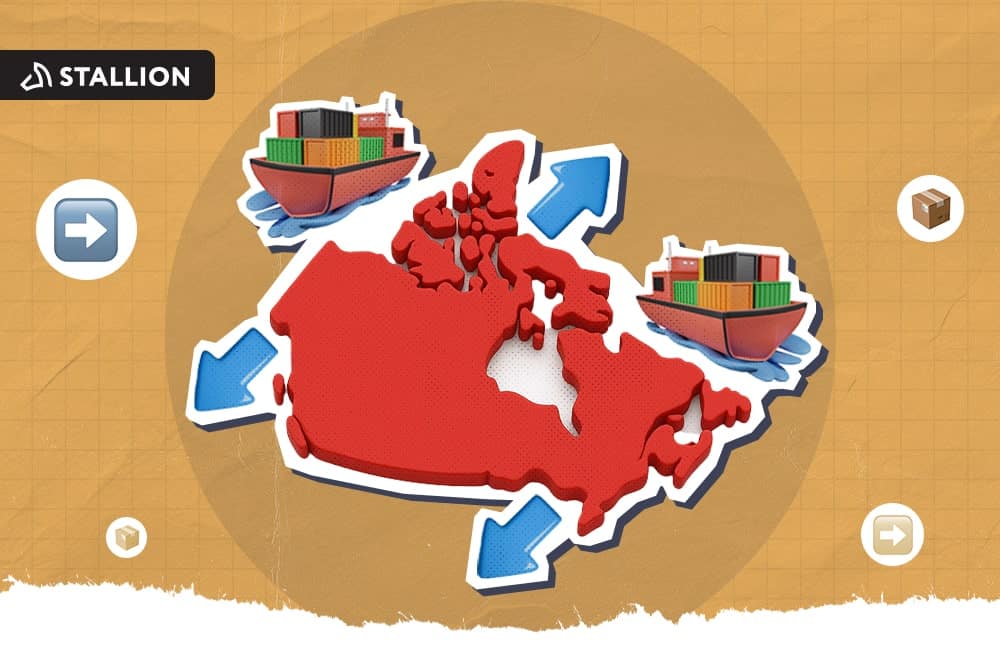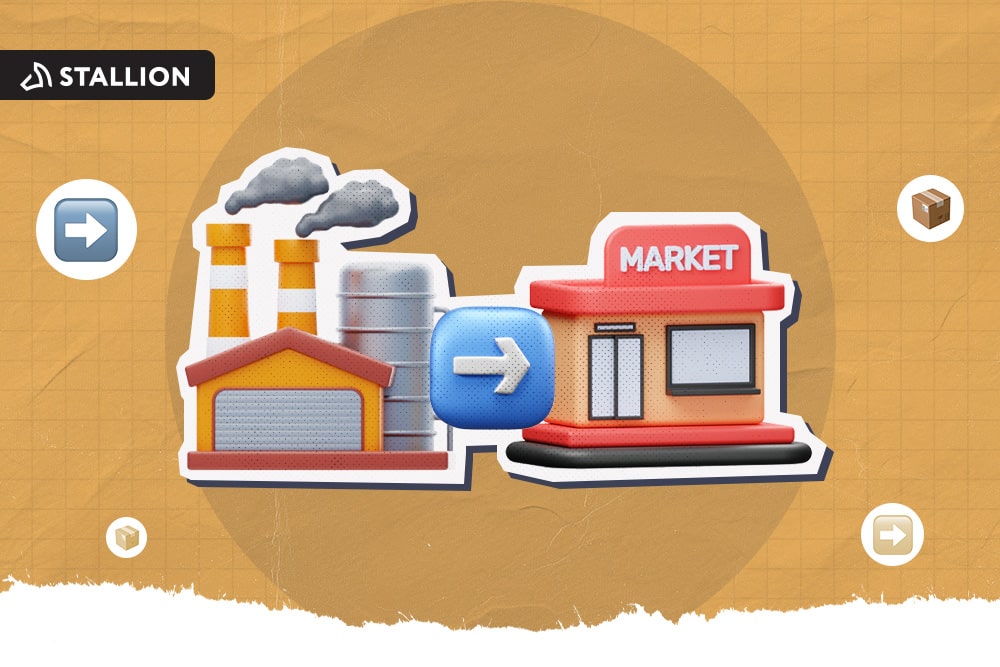
Since the emergence of the Silk Road in 130 B.C., human civilization has geared itself towards continuous inter-economic trade. These ancient trade networks have had a lasting impact on commerce and business, and are still considered the backbone of the shipping process we know today. Since certain goods were stored in wooden ships and delivered in large quantities, ancient merchants learned how to conduct border shipping services.
In today’s modern society, bulk shipping solutions continue to be utilized by entrepreneurs who sell products to customers worldwide. Studies show that 21% of the world’s fleets are comprised of bulk carriers that transport large amounts of cargo every day-- Yet despite this fact, most sellers are still not too familiar about how the bulk shipping process works.
If you’re reading this article, you must want to know more about bulk shipping. This simple guide will let you learn about the basic concept of bulk shipping, as well as the costs and factors to consider.
In simple terms, bulk shipping is the process of transporting products in large quantities. These products are usually unpackaged commodities, including petroleum, coal, and steel, which are all loosely placed into the vessel’s large cargo holds. Crew members try to measure a cargo’s volume and mass requirements before and after being stored on the ship, making bulk shipments a safe option for most traders.
However, there are lots of merchants today who still confuse bulk shipping with breakbulk shipping. While bulk shipping refers to the transport of unpackaged products that are stored in cargo holds, breakbulk shipping is the process of delivering individual items that are packed and stored in bags, boxes, crates, and barrels. Some of the most popular products for breakbulk shipping include cars, electric parts, and other electrical items, but other items have also started being delivered through this mode of shipment.
Whether you plan to import or export products, the bulk shipping process is divided into three major stages:
The first thing that most sellers do with their research is to determine which shipping service is cheapest. While shipping is a massive cost that businesses try to keep at a minimum, strictly having this mindset may deprive you of maximizing your shipping value for money.
In terms of bulk shipping solutions, costs are calculated either per ton or per day. Since liquid bulk goods require heavy-duty cargo holds and larger shipping vessels, they may cost from $20,000 to $50,000 per day. Some shipping companies offer bulk shipping services at around $18,000 a day but may lack other services.
Breakbulk shipments, on the other hand, are cheaper since they are packaged and ready to store in smaller container loads. A small container full of cargo may cost between $1,500 and $3,000 depending on the shipping company. To save a little bit of money on smaller products, merchants are open to sharing identical cargo containers with other trading companies.
It would help if you also noted certain restrictions that shipping companies have imposed on their bulk shipping services. For instance, some entrepreneurs based in the U.S. try to ask shippers, “Can you ship alcohol via U.S. postal service?” At the moment, the US Postal Service prohibits the local or international shipment of alcohol. Whether you try to ship them individually or in bulk, the USPS will deny any transfers that include alcohol.
Dry bulk goods and liquid bulk goods are the two major product types where you can utilize bulk shipping. Below is a basic overview of each shipment type:
Solid bulk goods can range from a variety of different products. The most popular products include commodities such as grains (rice, wheat, and oats) or minerals (copper, coal, and steel), as well as manufacturing items such as automotive vehicles, industrial parts, and plastic.
These dry bulk goods are stored to their respective cargos using cranes and silos, and shipped to other locations through large merchant ships that are fit to carry dry bulk.
Some examples of liquid bulk goods include petroleum, liquid nitrogen, and even household items such as milk and wine. If it is a liquid material that can fit a cargo hold without the need for packaging, it can be considered a liquid bulk product.
Most liquid bulk goods are stored in a secure tanker and shipped using heavy-duty merchant vessels. These ships have a robust structure that can carry up to 400,000 tons of weight.
Most first-time entrepreneurs who try to get their products shipped in bulk may face problems if they don’t know the ins and outs of bulk shipping. They may have chosen a company that overcharges for bulk shipping, or they didn’t follow specific guidelines related to their products.
These tips will help new businesses get an idea of how to maximize their bulk shipping:
Before you decide to get any product shipped in bulk, the first thing you should do is take down its exact size and weight. These are, after all, the primary variables that shipping companies look at when calculating your costs. Shipping companies will likewise require you to fill in a form with product size and weight measurements, which should be completed before your products get labeled with a freight classification number.
For certain bulk goods, another essential variable to consider is the dimensional weight. A product’s dimension is the amount of space that it takes up in a cargo hold or container-- if a product takes up more space but isn’t necessarily heavy, it may still cost more. Shipping companies usually consider product density to calculate bulk shipping costs accurately.
Liquid bulk goods may be stored in a secure tanker to keep contents safe, but the same thing cannot be said for dry bulk.
The journey of an international freight carrier can always be a turbulent one. It can sway from side to side, surge forward, or heave on an upward and downward motion. All these uncontrolled movements may likely damage dry bulk goods if they are not packaged well or if they are not stacked correctly. Imagine spending valuable time, money, and effort into a high-quality product, only to find out that it was damaged during the shipping journey.
This tip is more appropriate for businesses that are into breakbulk shipments more than general bulk shipments. As a solution, make sure to invest in high-quality packaging to keep your products protected and make sure you pile your products on top, under, or against other goods.
If you ship frequently, you may consider investing in a shipping insurance policy to protect your business from paying unnecessary damage costs.
The distance traveled by an international freight carrier is undoubtedly one of the factors that are taken into consideration when calculating shipping rates. The catch is relatively simple: the longer the travel, the higher the costs. Smart businesses analyze and calculate their bulk shipping budget ahead of time, and you should probably do the same thing.
However, you should be aware that shipping costs are not calculated solely on the number of miles traveled. As there are rules and regulations for each country, shipping companies look at countries of origin, destinations, and types of product shipments involved in the journey. For instance, a particular delivery can still be more expensive if the travel distance is shorter, but the destination country has imposed certain restrictions on cargo loads.
Bulk shipping solutions can be a tricky game to play, especially for first-time businesses who are not all too familiar with the process that goes along with it. It is crucial to take a systematic approach and strategically think about how you can transport goods efficiently and keep costs manageable. Educating yourself on the basic concept of bulk shipping, which likewise includes the general expenses attributed to the service, and the type of goods that can be delivered is the first step to creating your bulk shipping strategy.
We hope this general guide helps you get going with bulk shipping. If you’re interested in hiring a team that provides small business shipping Canada services, we at Stallion Express can help you ship your products for a fair price. Shipping services in Canada have never been this easy. Book your appointment today!



Can our fellow Torontonians relate?
-
#smallbusiness #business #entrepreneur #socialmedia #shipping #ecommerce #canadianecommerce #shopify #poshmark #b2b #saas #etsy #ebay #canada #canadiansmallbusiness #shoplocalcanada #entrepreneur
#toronto

Here’s your quick hassle free shipping from 🇨🇦 to 🇺🇸 as a business owner!
-
Any questions?! Leave them 👇🏻 and save this video so you don’t forget!
-
#smallbusiness #business #entrepreneur #socialmedia #shipping #ecommerce #canadianecommerce #shopify #poshmark #b2b #saas #etsy #ebay #canada #canadiansmallbusiness #shoplocalcanada #entrepreneur

Meet @drinkbenny a 🇨🇦 female founded energy drink brand! Instead of focusing on their products, they’re taking a unique approach by hosting in person events in different Canadian cities to offer an experience for their community 🧡
-
What are your thoughts on in person events? 💭
-
#smallbusiness #business #entrepreneur #socialmedia #shipping #ecommerce #canadianecommerce #shopify #poshmark #b2b #saas #etsy #ebay #canada #canadiansmallbusiness #shoplocalcanada #entrepreneur

Do you know the difference between DDU and DDP when shipping internationally 🌏 ?
-
Questions? Leave them below! 👇🏻
-
#smallbusiness #business #entrepreneur #socialmedia #shipping #ecommerce #canadianecommerce #shopify #poshmark #b2b #saas #etsy #ebay #canada #canadiansmallbusiness #shoplocalcanada #entrepreneur

Here’s a quick hack to save time from choosing multiple postage options
↪️ Turn on the lowest postage rate automation to save you time!
-
Questions? Leave them below! 👇🏻
-
#smallbusiness #business #entrepreneur #socialmedia #shipping #ecommerce #canadianecommerce #shopify #poshmark #b2b #saas #etsy #ebay #canada #canadiansmallbusiness #shoplocalcanada #entrepreneur
